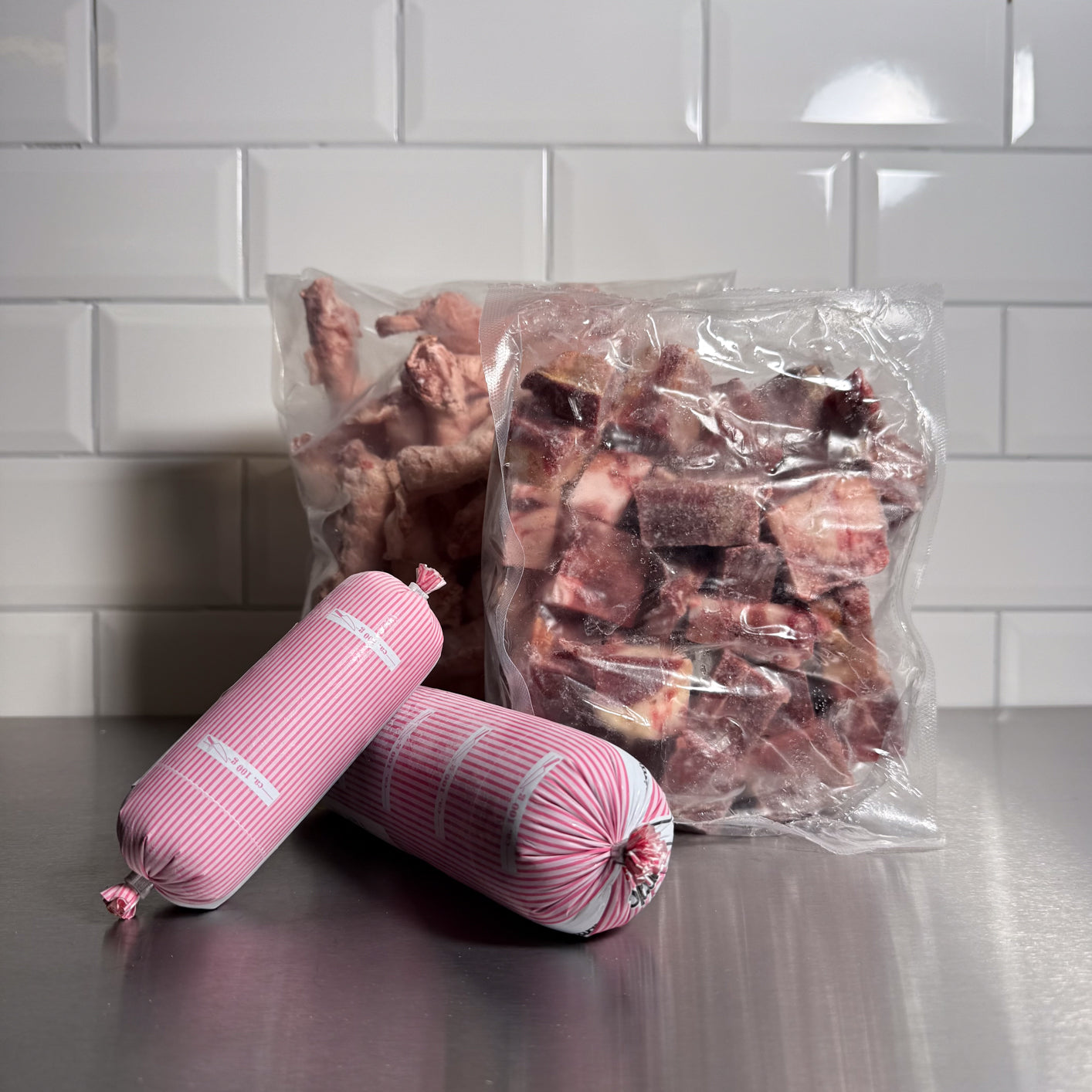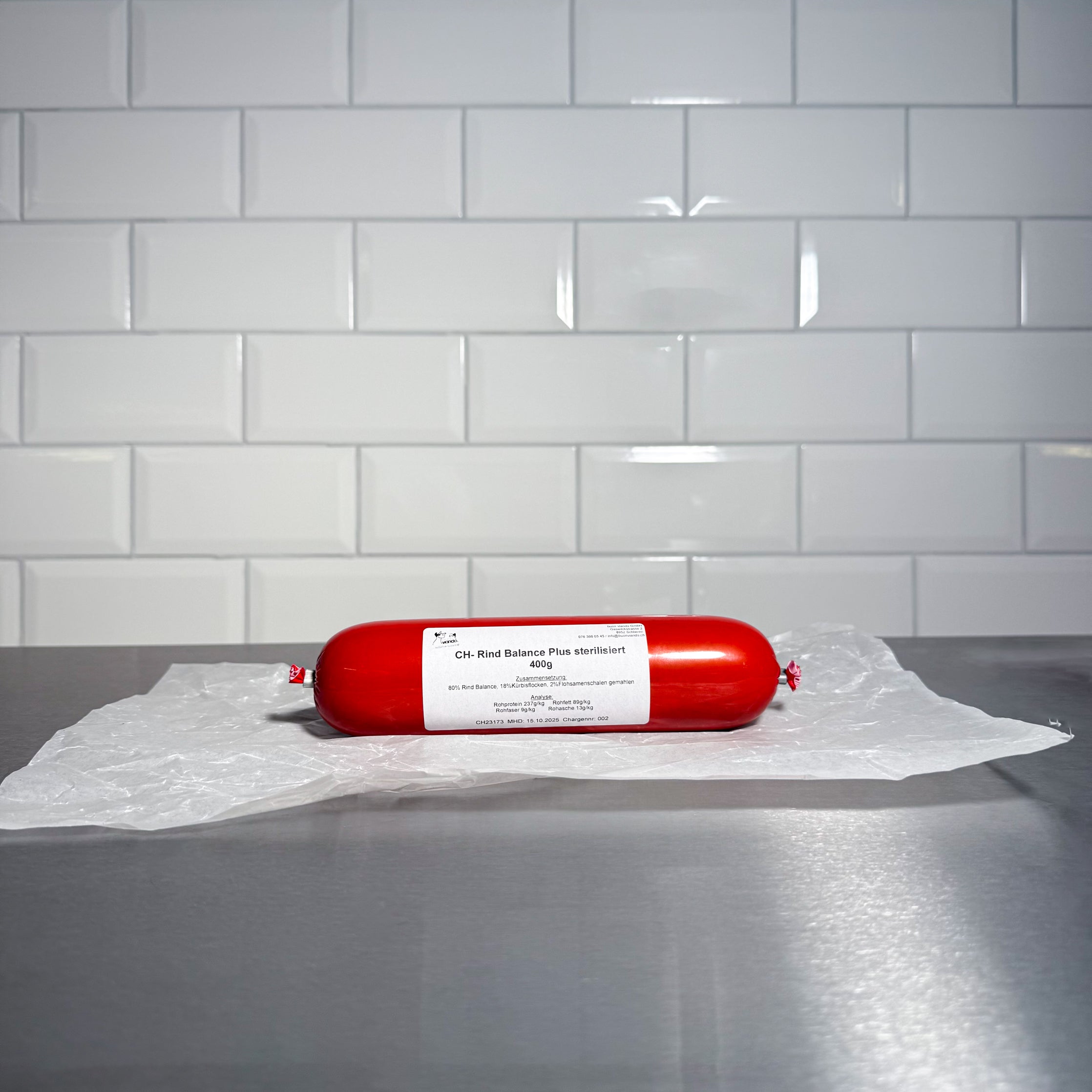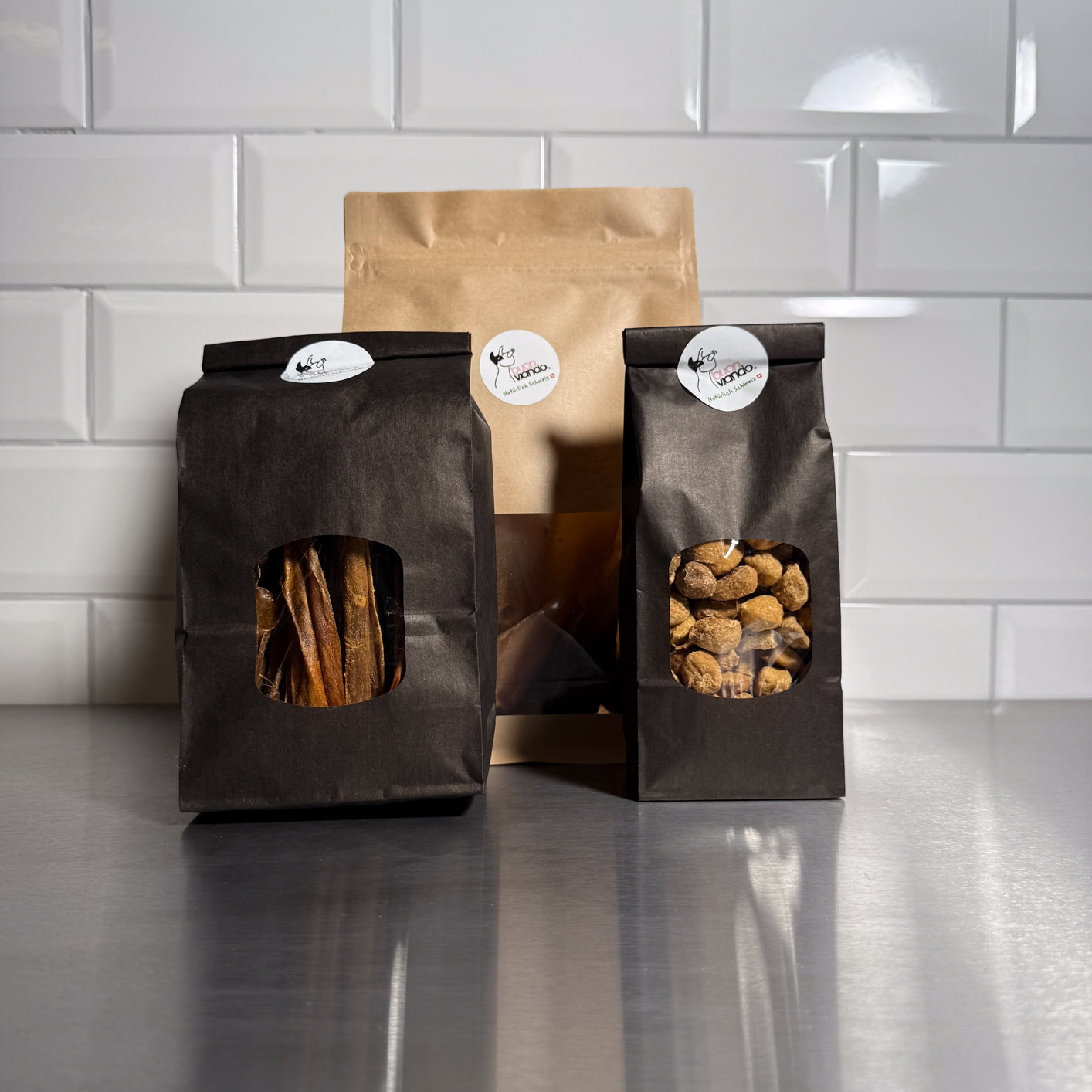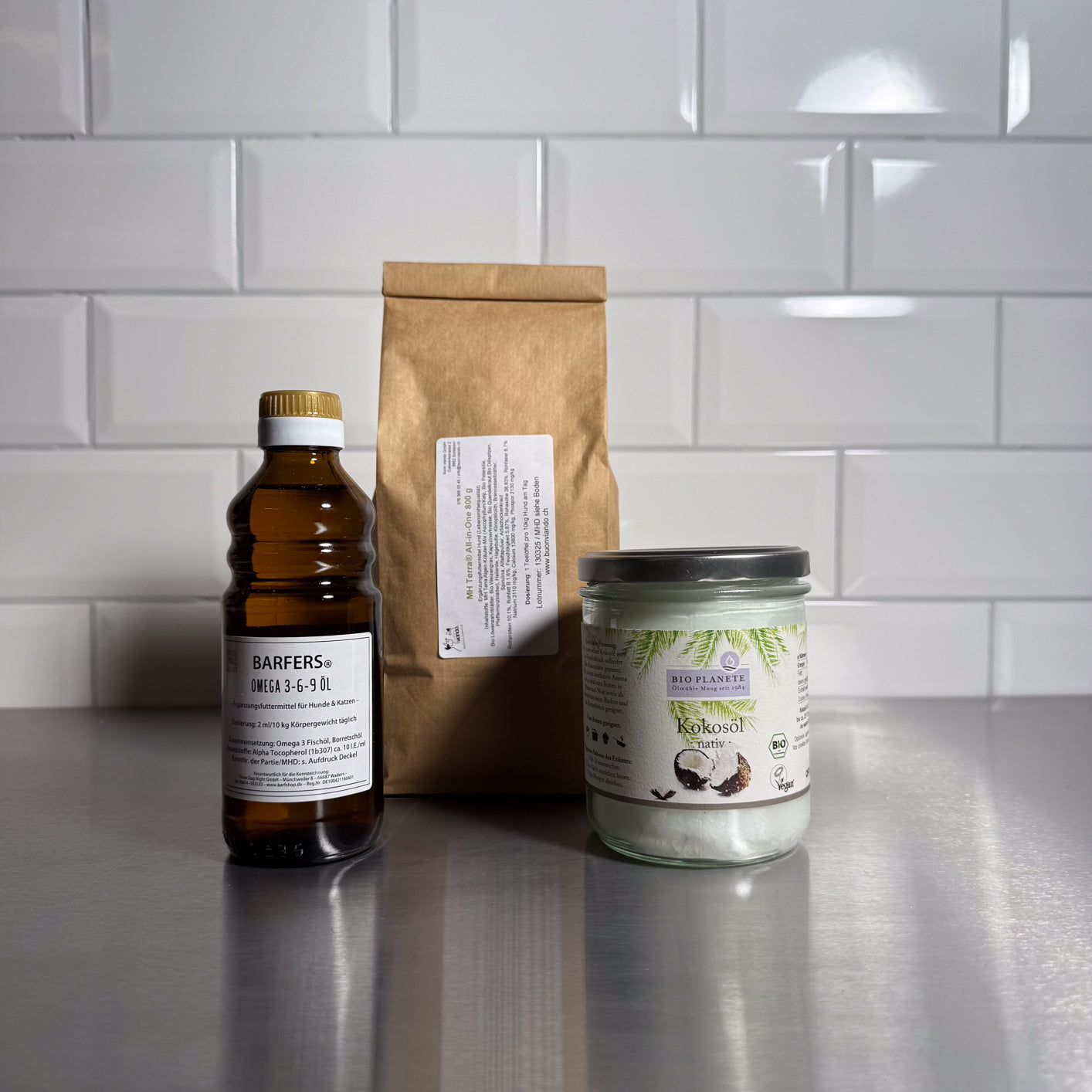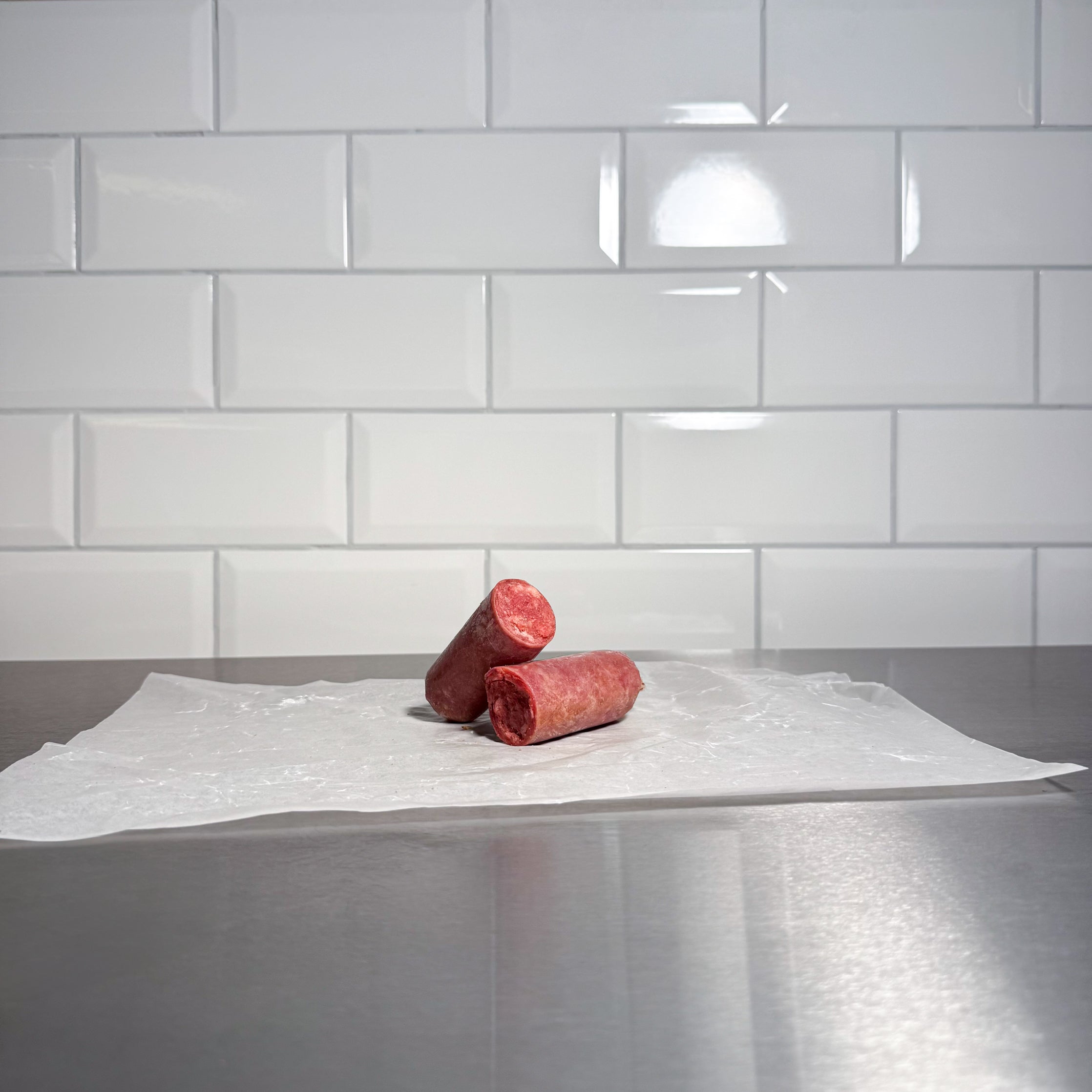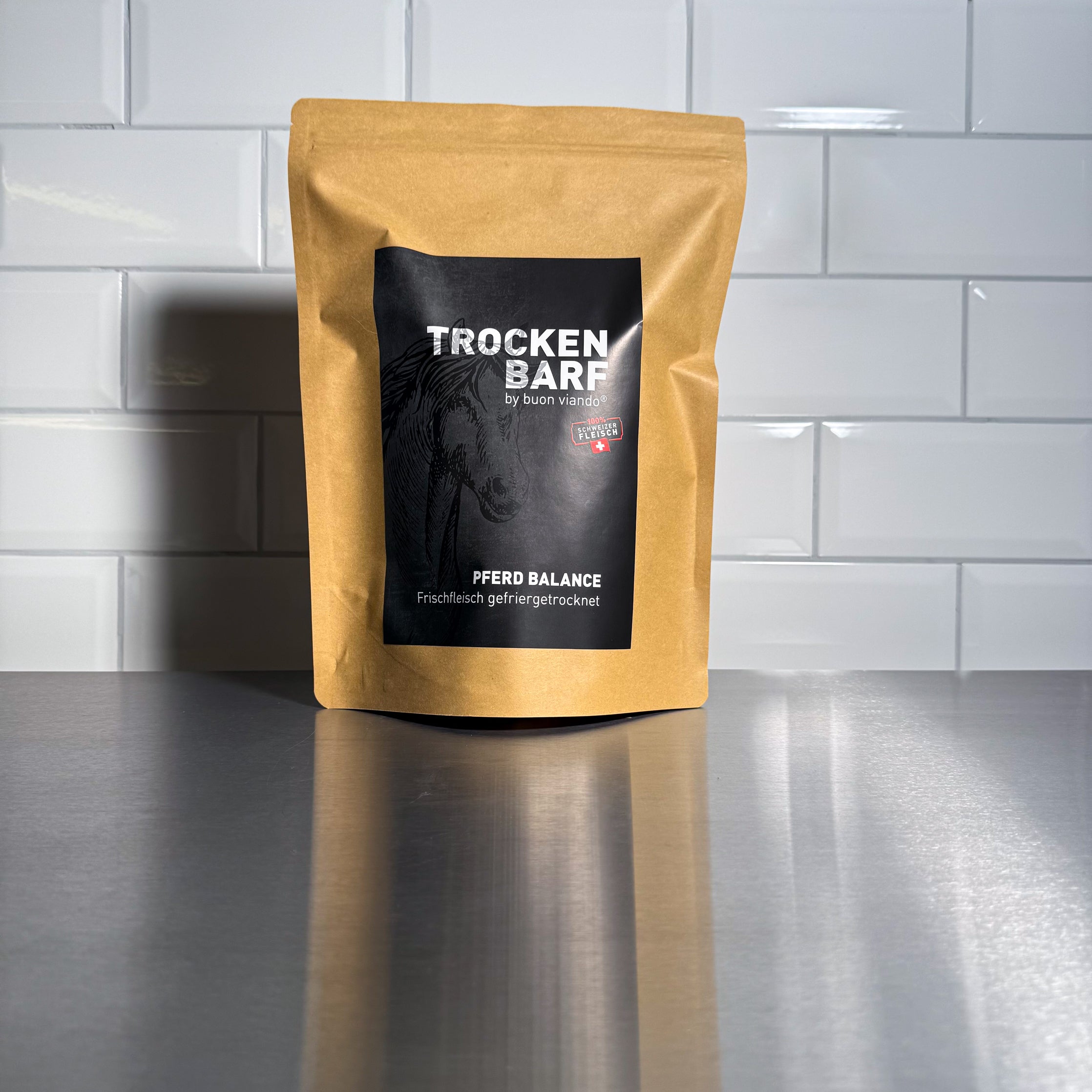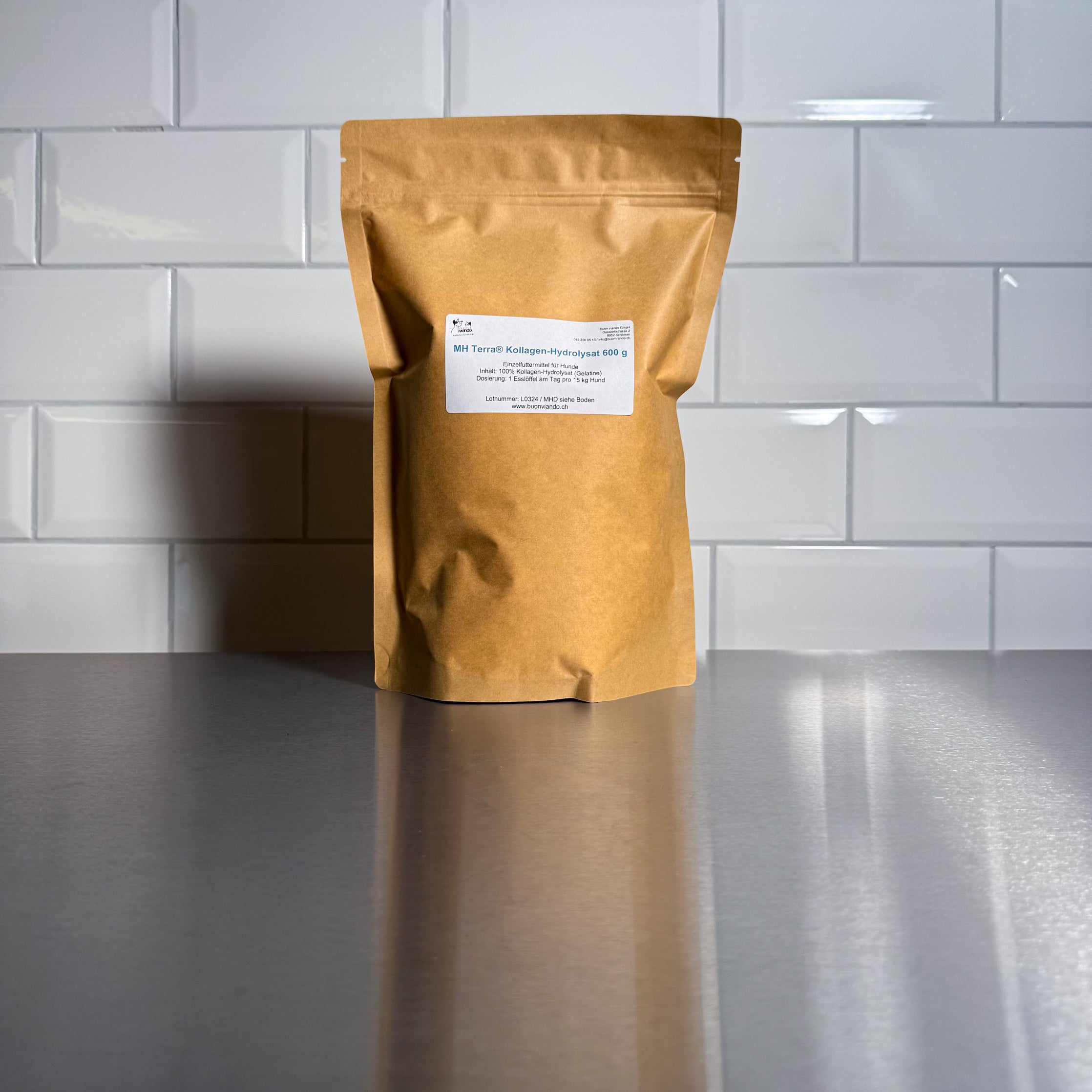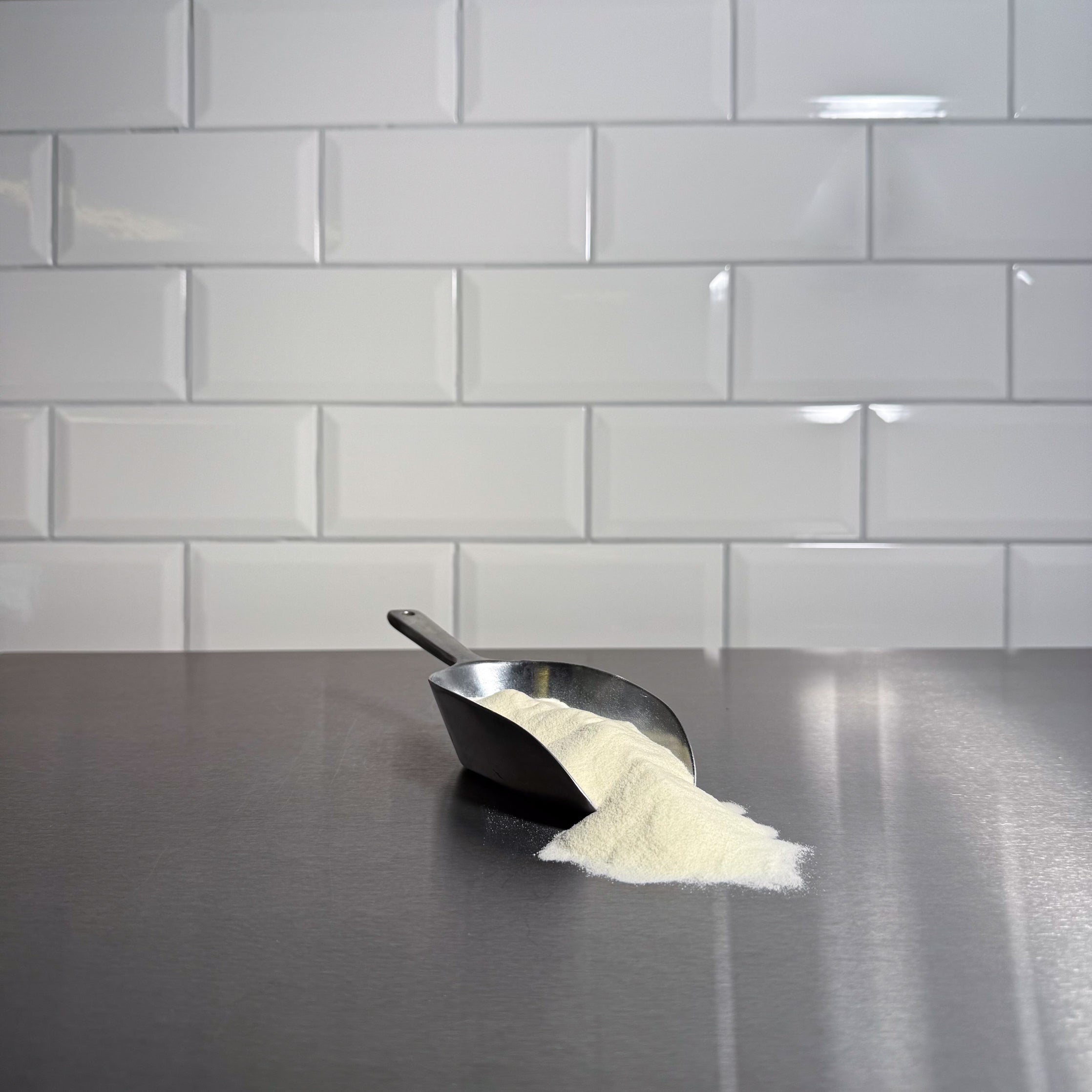What is collagen hydrolysate?
Collagen hydrolysate is broken down collagen that has been broken down into its smaller components – called peptides and amino acids – through enzymatic processes. This makes it particularly bioavailable and can be quickly absorbed by the body and incorporated into the affected tissues.
The most important amino acids it contains are glycine, proline, and hydroxyproline – they form the framework for healthy connective tissue and are not found in this form in any other protein.
Effect on the musculoskeletal system
Collagen hydrolysate can stimulate the formation of new cartilage cells and helps slow the degradation of joint cartilage. It provides the necessary building blocks for supple joints and resilient tendons. This is particularly valuable for dogs with osteoarthritis, after surgery, or during physical exertion.
In Dr. Nina Weide's dissertation, it was scientifically confirmed that dogs with chronic musculoskeletal disorders experienced significantly fewer complaints after getting up and climbing stairs. Their general enjoyment of walking also increased – a clear sign of improved quality of life.
More than just for joints – coat, skin, and claws
A nice side effect: The special amino acid composition also supports coat growth and skin health. Many dog owners report shinier coats, stronger claws, and even improved skin elasticity.
This is because collagen also plays a key role in the structure of the skin. It ensures firmness and elasticity – even in animals. A clearly visible effect can be seen, especially in dogs with sensitive or flaky skin.
Differences between dogs and cats
While dogs usually accept and tolerate collagen hydrolysate without any problems, cats may require some sensitivity depending on their personality and food preferences. The slightly distinctive smell isn't welcome in every cat. However, the effect – especially in older cats with joint problems or skin issues – is just as valuable as it is in dogs.
Cats are also more prone to mobility problems with age, but these often manifest themselves more subtly. A smoother gait or a renewed desire to play can be an indication that collagen supplementation is taking effect. It's important to pay attention to acceptance and tolerance – if in doubt, start with small amounts or consult a specialist.
When does it make sense to give it?
- For age-related stiffness or arthritis
- After orthopedic surgery or accidents
- To support tendons and ligaments in athletic dogs
- During growth – especially in large breeds
- For dull coats, brittle claws, or dry skin
- As general support for active and older cats
Conclusion
Collagen hydrolysate is much more than a trendy product. It provides your pet's body with exactly the building blocks it needs for healthy mobility and stable tissue – scientifically proven and noticeable in practice. Whether dog or cat: If you want natural support, collagen is a true all-rounder.

